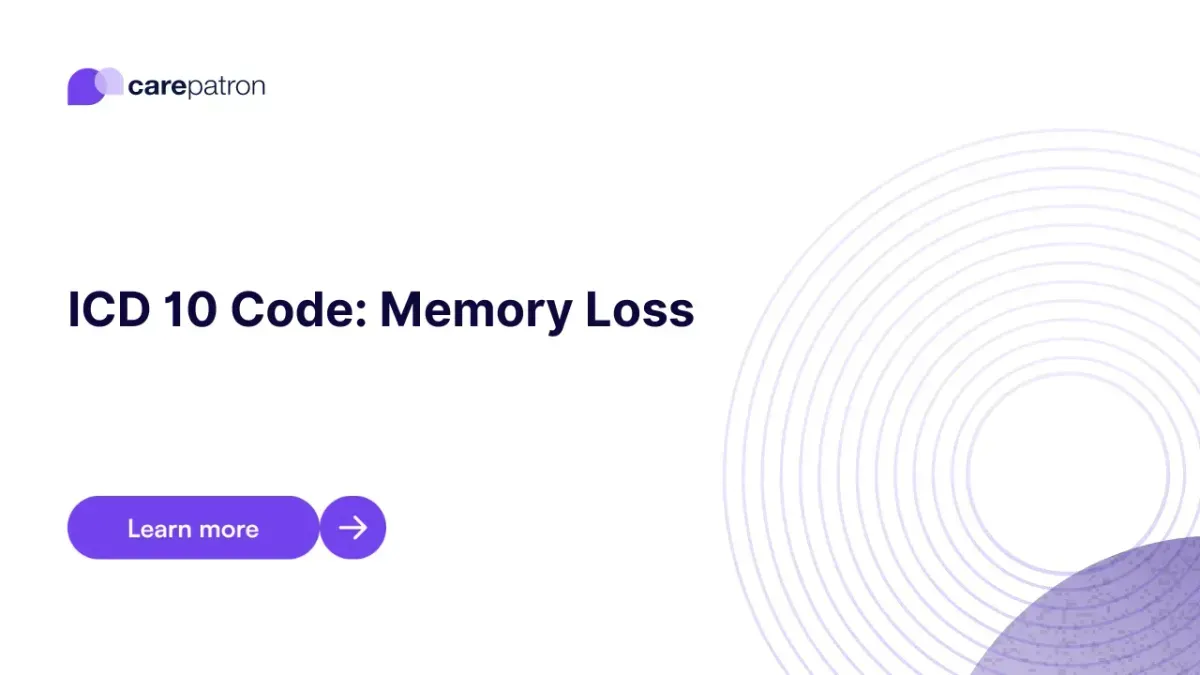
Memory Loss ICD-10-CM Codes
Explore ICD-10-CM codes for memory loss. Learn about standard codes and billable statuses, and gain clinical insights in this comprehensive guide.
Use Code
Commonly asked questions
Some degree of memory decline can be a normal part of aging, often referred to as age-related cognitive decline. However, a healthcare professional should evaluate significant or sudden memory loss, which may indicate an underlying medical or psychological condition.
Management of memory loss depends on the underlying cause; for conditions like Alzheimer's disease, medications and supportive care may be used. Therapy and stress management techniques can be helpful for memory issues related to stress or psychological factors. Lifestyle factors, including a healthy diet, regular exercise, and mental stimulation, can also support cognitive function.
If you or a loved one experiences significant or worsening memory loss, significantly if it interferes with daily life or is accompanied by other concerning symptoms.
EHR and practice management software
Get started for free
*No credit card required
Free
$0/usd
Unlimited clients
Telehealth
1GB of storage
Client portal text
Automated billing and online payments
